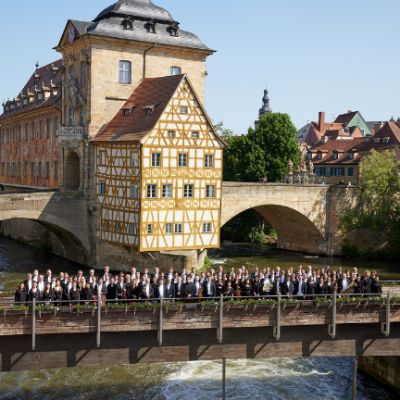| Vittoria Yeo | Soprano |
| Elena Zhidkova | Mezzo-soprano |
| Antonio Poli | Tenor |
| Riccardo Zanellato | Bass |
| Choir of Bamberg Symphony Orchestra | |
| Bamberg Symphony | |
| Juraj Valčuha | Conductor |
| Jannis Vakarelis | Piano |
“Pleasant is only the activity of the present, the hope of the future and the memory of the past.” (Aristotle) But what memories remain of a long life? When Giuseppe Verdi was asked shortly before his death which of his works he considered the best, he replied without hesitation: “The retirement home for elderly musicians that I built in Milan.” Verdi was Italy’s ultimate “composer of the people”; his fellow countrymen said of him: “He makes little squiggles on paper and gets money for them.” These “little squiggles” were the source of Verdi’s highly romantic music, including his famous Requiem – which he referred to ironically as his “greatest opera”. Despite his charity, Verdi did not have much time for the church. His wife described his religious attitude in the words: “I wouldn’t exactly say he is an atheist, but he’s certainly no firm believer.” Verdi himself had not actually planned to write a Requiem, as he was convinced that “there are so many requiems, far too many! It is unnecessary to add yet another one to their number.” But his opinion changed: when Gioachino Rossini died in 1868, Verdi planned to co-write a work commemorating Rossini with another composer. This noble project failed, however. When Verdi learned of the death of the poet Alessandro Manzoni in 1873, he developed a “heartfelt desire” to write a “Messa da Requiem” in Manzoni’s memory – and thus he expanded the “Libera me”, which he had already composed, into a large-scale “opera in church garb”. Verdi succeeded in producing a brilliant cross between a more reverent, sacred style and the passionate operatic idiom. The Slovakian Juraj Valčuha will return as our guest conductor to lead us through the Requiem’s musical


